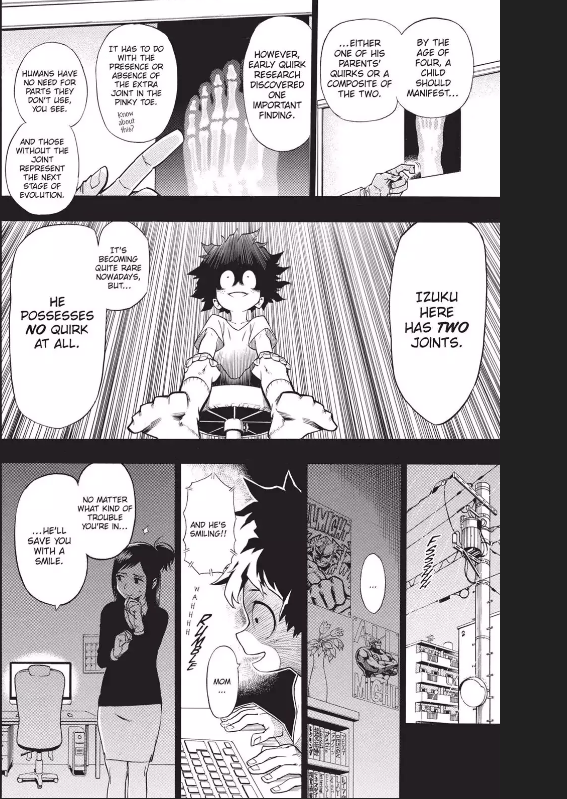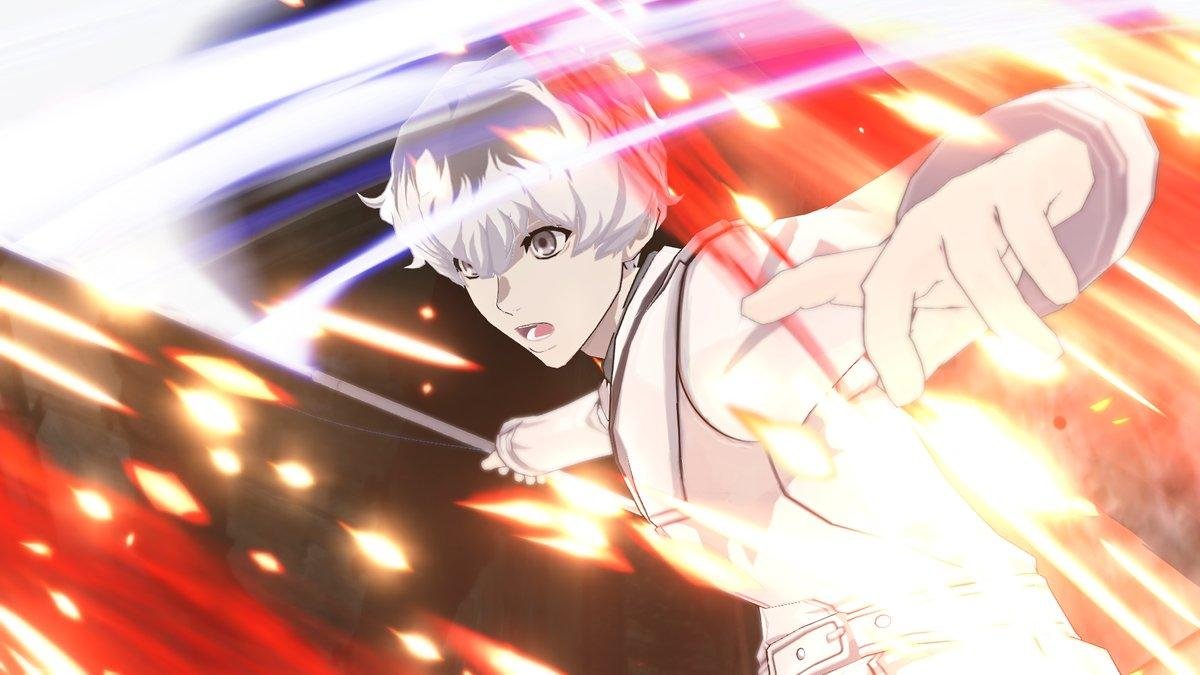The shounen genre has been around for many, many years, and throughout that time there have been countless new series of shounen anime/manga which often follow the same old tropes found in that genre.
What is a trope?
Simply put, a trope is a theme, concept or character archetype that is commonly used in stories/media and is easily recognisable. For example: The hot-blooded protagonist or the ideal of never giving up no matter how bad the odds are.

Tropes aren’t necessarily a bad thing. While an artist uses different paints to create a picture, the storyteller uses different tropes to tell a story. What really matters is how those tropes are used, and naturally in a popular genre like shounen, characters and stories from certain series can feel very generic/repetitive.
Boku no Hero Academia (BNHA) does not fall into that category. Although BNHA features almost every commonly used shounen trope known to man, the mangaka (writer and illustrator) of the series, Kohei Horikoshi has set a great example of how to write a story using conventional shounen tropes in a way that engages the audience and gets them emotionally invested in the story and its characters. For this article, we’re going to take a look at how he does this with the protagonist of the story.
How BNHA handles the shounen protagonist
The protagonist of BNHA, Midoriya Izuku aka “Deku”, is another teen protagonist in a long line of shounen heroes that have come before him. Naruto, Ichigo from Bleach, Luffy from One Piece, Yusuke from Yu Yu Hakusho, Ippo from Hajime no Ippo and many more that I’m sure other anime fans will be able to name.

All of these characters have different personalities and goals, but their paths are essentially the same. They start off with little to no power and have to train hard to get stronger in order to reach their goal.
Like any other good story, BNHA makes sure to establish Deku’s goal right from the very beginning – to become the greatest hero. However, Deku stands out as one of the great shounen protagonists due to the way Kohei Horikoshi shapes the narrative to allow the audience to empathize with Deku’s character on a deep emotional level.
A common trope in shounen is for the protagonist to have some sort of hidden talent/power that makes them special (e.g. Naruto being the vessel for the nine tailed fox), but Deku starts off as a convincingly ordinary boy with no powers.
Kohei Horikoshi masterfully uses the introductory chapters of BNHA to spend time drawing the audience into the narrative and getting them to empathize with Deku’s struggle on an emotional level before he comes into his power, and he sets it up perfectly by writing Deku as a character who’s in a position that many of us can identify with: a person with a dream that they don’t have the power to achieve.
Deku’s lack of an innate superpower (referred to as “Quirks” in the BNHA universe) in a world where 99% of the population are born with their own powers is an obvious metaphor for the struggles that people face in the real world when they lack the talent/means to achieve their goals, and naturally, this is something that 99% of people will be able to identify with.

The setting of BNHA is one thing that works in Deku’s favour as being a memorable shounen protagonist, but there’s one more aspect to his character that Kohei Horikoshi uses to make viewers empathize with him on an even deeper level.
Family ties and real relationships
Another very common trope among shounen stories is the protagonist being an orphan due to their parents either dying before the beginning of the story, or in some cases, getting killed to start off the entire story in the first place. Although Deku does fit into the trope of the typical shounen protagonist, Kohei Horikoshi specifically chose to avoid the “loner protagonist” trope and gave Deku the specific character trait of having a close relationship with his mother, and it works to the immense benefit of the viewers engagement with the narrative.
The loner protagonist is a common trope that quite a few people will be able to identify with (e.g. Naruto and Luffy’s childhood), but it’s more likely that a wider audience will be able to identify with Deku’s bond with his mother and the way that his quirk-lessness and goal of becoming a hero shapes their relationship.
Deku’s mother wants to support his goal as much as she can, but she knows that his lack of a superpower makes his goal virtually unobtainable. It’s clear that she’s torn between supporting her son in his virtuous ambition and managing his expectations for something that he most likely won’t be able to achieve. Thus, both Deku and his mother both carry a burden of guilt towards each other as Deku knows that he is worrying his mother by pursuing the rocky path of a hero, while his mother agonizes over the fact that she can’t do anything to help her son achieve his one greatest desire.


This relationship dynamic is established at the beginning of the story and plays a big part in making the audience empathize with Deku. His familial bond with his mother is something that’s easier for most people to personally identify with compared to being the last survivor of an alien warrior race, or being the vessel of an ancient god. Kohei Horikoshi uses this key aspect of Deku’s character to create a brilliant moment that that comes right at the end of the introductory chapter of BNHA, which got me completely hooked on the story and genuinely emotionally invested in Deku’s journey.
After a series of trials, All Might (The world’s greatest hero and Deku’s lifelong idol/role model) finds Deku and tells him that he does have what it takes to be a hero despite the fact that he doesn’t have any superpowers. This scene serves as the launching point for the story and would be touching enough on its own, but Kohei Horikoshi adds on an extra touch to evoke the audiences emotion in the form of Deku’s inner monologue.
As All-Might acknowledges his potential, Deku recalls a key moment in his backstory when he and his mother first came to the realisation that Deku was quirkless and would not be able to fulfil his dream, which was shown earlier in the chapter.


This is brilliant writing by Kohei Horikoshi, adding an extra layer of character development to an already emotional scene and elevating this moment far beyond the typical shounen character introduction. This scene does an amazing job of setting the tone for the rest of the series as it perfectly establishes Deku’s character and what is at stake for him over the course of the story, which draws the reader in and gets them fully invested in Deku’s journey.
Conclusion
The way Deku’s character is initially introduced and developed is just one of the great examples of how BNHA uses shounen tropes in a way that makes the story more interesting and emotionally engaging. There’s a ton of typical shounen tropes in BNHA: the childhood rival, the tournament arc, the master and student relationship, the mysterious group of villains, the quiet genius, and many many more. All of them are worth talking about and all of them serve to enhance the narrative of BNHA. Even Deku’s character has far more to it tha we’ve talked about here, and we haven’t even mentioned one of the most important aspects of his character: the fact that he injures himself whenever he uses his power. But that’s a discussion for another day.
If you’re already following BNHA, then we hope this article gave you a greater appreciation of the amazing writing in this series, and if you aren’t following BNHA, then we really really hope you’ll give it a try. On the surface, it may seem like just another typical shounen, but once you get into it, you’ll discover that it’s actually one of the best written shounen stories of all time.












